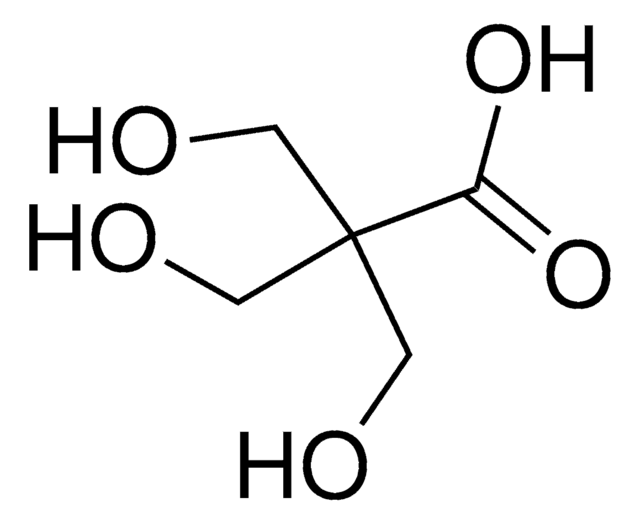106615
2,2-Bis(hydroxymethyl)propionic acid
98%
Synonym(s):
Bis-MPA, DMPA®, Dimethylolpropionic acid
About This Item
Recommended Products
vapor density
<1 (vs air)
Quality Level
Assay
98%
form
solid
mp
189-191 °C (lit.)
solubility
H2O: soluble
acetone: slightly soluble
benzene: insoluble
methanol: soluble
functional group
carboxylic acid
hydroxyl
SMILES string
CC(CO)(CO)C(O)=O
InChI
1S/C5H10O4/c1-5(2-6,3-7)4(8)9/h6-7H,2-3H2,1H3,(H,8,9)
InChI key
PTBDIHRZYDMNKB-UHFFFAOYSA-N
Looking for similar products? Visit Product Comparison Guide
Application
Legal Information
Signal Word
Warning
Hazard Statements
Precautionary Statements
Hazard Classifications
Eye Irrit. 2
Storage Class Code
11 - Combustible Solids
WGK
WGK 3
Personal Protective Equipment
Choose from one of the most recent versions:
Certificates of Analysis (COA)
Don't see the Right Version?
If you require a particular version, you can look up a specific certificate by the Lot or Batch number.
Already Own This Product?
Find documentation for the products that you have recently purchased in the Document Library.
Customers Also Viewed
Our team of scientists has experience in all areas of research including Life Science, Material Science, Chemical Synthesis, Chromatography, Analytical and many others.
Contact Technical Service












